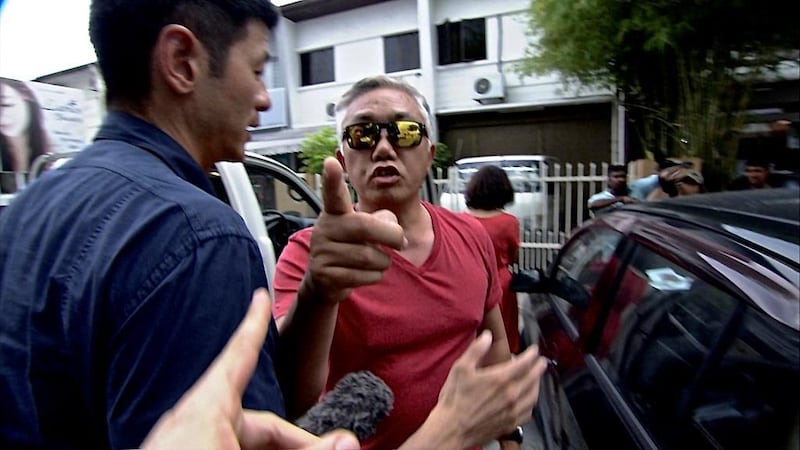Wildlife traffickers are taking advantage of Dubai’s position as a global transit centre between Africa and Asia, an investigation has found.
Dubai is given only a cursory mention in The Return of the Lizard King, a documentary on Anson Wong, a Malaysian who has become one of the world’s most famous wildlife traffickers.
But in a year of research, a television investigation found evidence that the emirate was being used as a key link in a smuggling route.
Rare and highly endangered animals and birds are taken from habitats in Africa, shipped to the Far East through Dubai and then sold to wealthy collectors worldwide.
“Dubai is a major hub now in terms of international travel, and especially coming from the African countries this is a big source place for wildlife trafficking,” said Steve Chao, host of the Al Jazeera news and current affairs programme 101 East, which aired the report in late November.
Through the investigation, Chao posed as a wildlife dealer in Madagascar, Thailand, Indonesia and Malaysia. His dealings with traffickers showed they had in-depth knowledge of security procedures in airports throughout the world.
“They have inside information from Customs officials as to which airports have X-ray checks, how many hours it takes before a suitcase or briefcase is X-rayed – they have all this information,” he said.
Quick connections make Dubai an attractive route to smugglers, as it means that for some flights, luggage checked at the point of origin is not screened by UAE officials.
“They know specifically that if they can get something from Madagascar, for example, to Dar Es Salaam and then through to Dubai, they can quickly pick up another plane anywhere within a few hours, therefore bypassing the need for an X-ray check,” Chao said.
The trade in endangered animals and plants is regulated by the Convention on International Trade in Endangered Species of Wild Fauna and Flora (Cites), which requires government-issued permits for some species to cross borders.
Some highly endangered species can only be exchanged for research purposes and may not be traded.
But according to the documentary, traffickers get around this by sending the animals to Asian countries such as Malaysia, where corrupt officials issue papers certifying the animal is of a non-endangered species.
It can then be re-exported to a country with a stricter inspection process.
“It might be an exotic tortoise that has been shipped in,” Chao said. “They change the name of the tortoise and then get papers that are legal Cites documents and they say it is an average so-and-so tortoise, not endangered.”
As there are about 5,600 animals and 30,000 plants protected under Cites, and distinctions among certain species and subspecies can be difficult to make by non-experts, it is often hard for even the best-trained officials to verify whether the documents match the animal.
“That is one of the biggest failings so far of Cites, the fact that sometimes a lot of the regulations of what is endangered and what is not endangered are just too confusing for the average Customs official or even for wildlife officials in certain countries,” Chao said.
Wong, also known as the Lizard King, has served two jail sentences for trafficking in the US and Malaysia.
He and other smugglers are becoming rich on the system’s failings, as the black market in endangered species is estimated at US$26 billion (Dh95.49bn) a year.
“The reason we went after the Lizard King in terms of profiling him was the fact that he was an example of all the failures in terms of international law enforcement,” said Chao.
The report includes an interview with a man in Indonesia, identified as Daniel, who admitted to collaborating with Wong.
As with others interviewed for the series, he spoke with an ease about his dealings that Chao found surprising.
“He was having such a free ride in Indonesia, according to himself, in a sense of having Customs officials in both Indonesia and Malaysia sort of working alongside him, that he basically almost got to the point that he felt that what he was doing was not so wrong, simply because he had the affirmation and cooperation from Customs officials.”
vtodorova@thenational.ae





